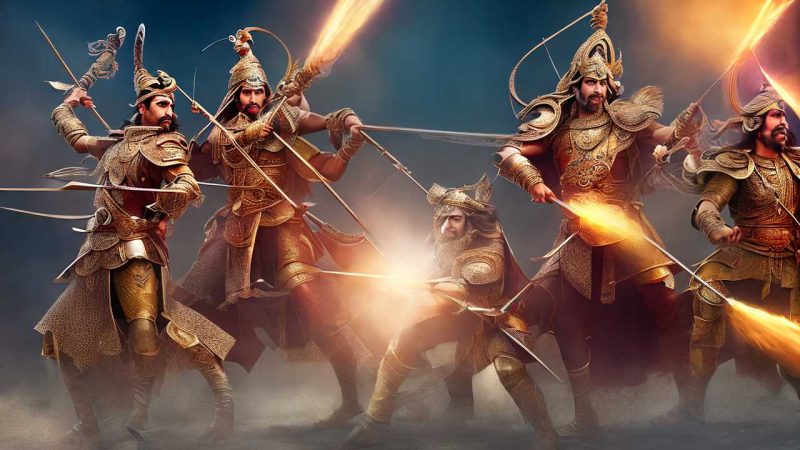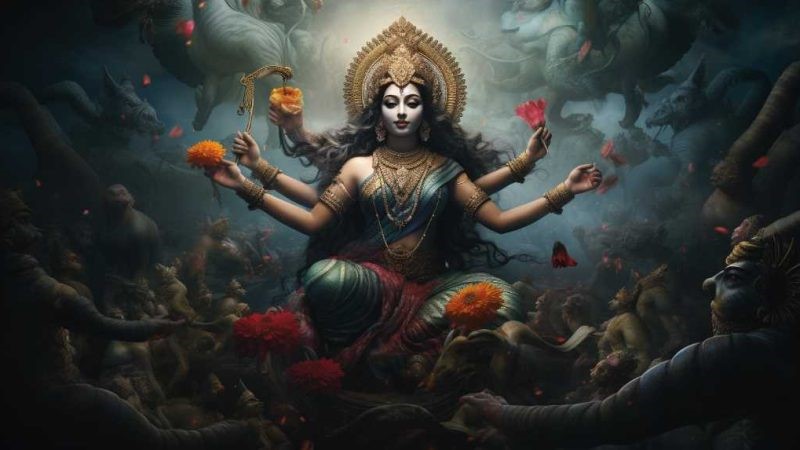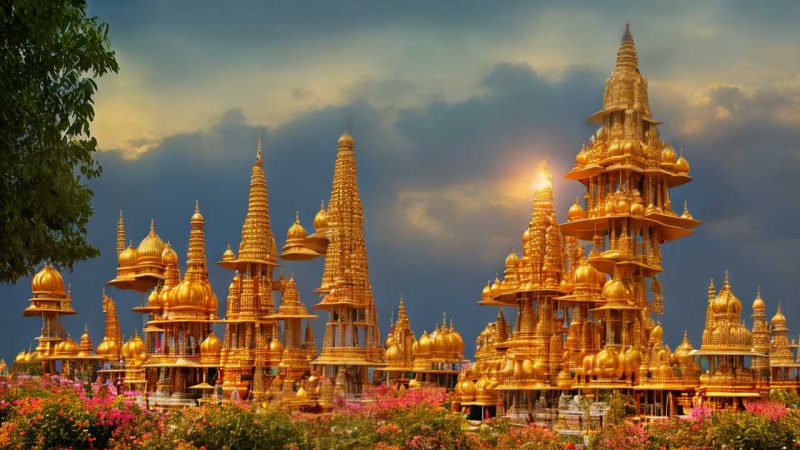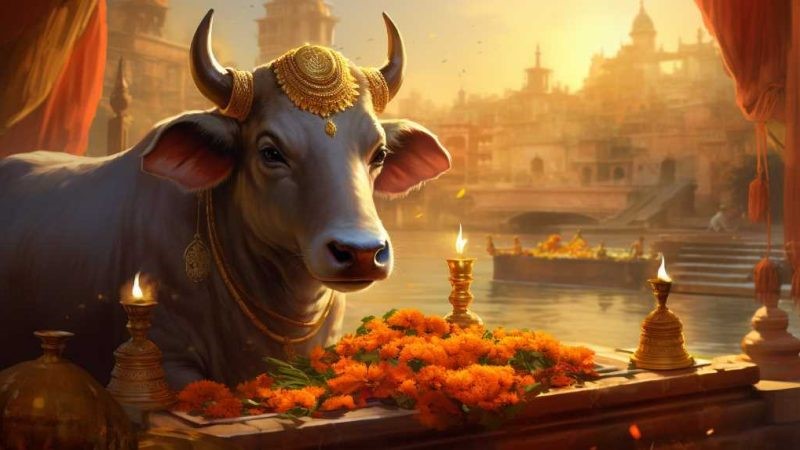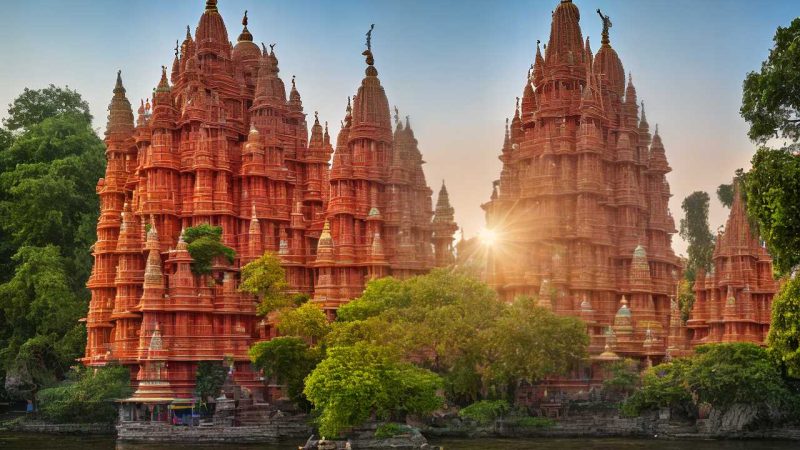The Celestial Bodies Hindu Deities and Planets
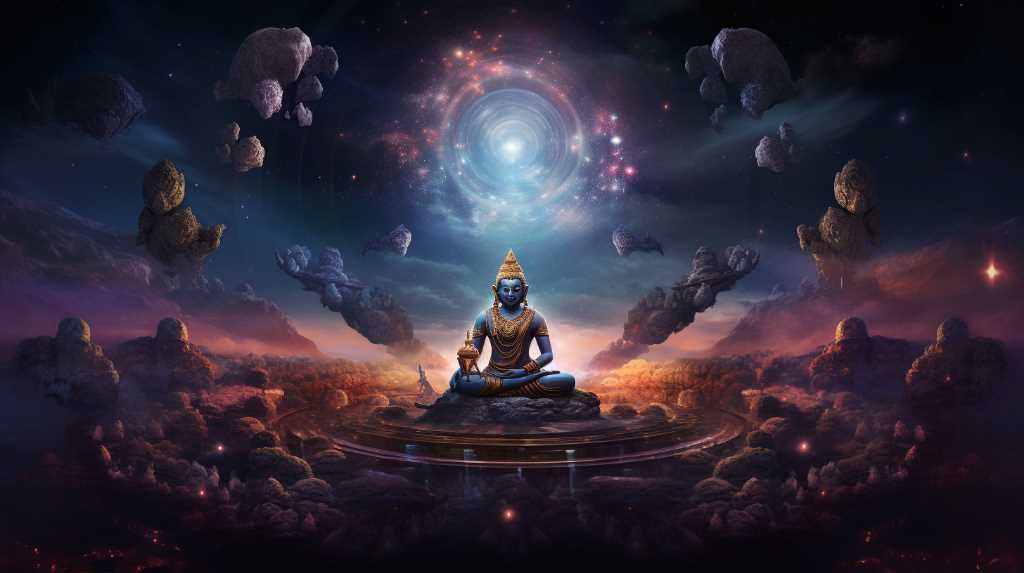
In Hindu stories, stars and planets are more than just lights in the sky. They are linked to gods and have a big role in what happens on Earth and in people’s lives.
The ‘Navagraha’ are the nine planets in Hindu beliefs, and each one is tied to a different god. These gods are said to control our luck and the world around us. When people study these planets and gods, they learn about Hindu traditions that mix space science, religion, and fortune-telling.
People show their respect to these planet gods with special ceremonies and think that the planets’ positions can explain life events. This shows that these gods are still very important to many.
By looking deeper, we can also think about bigger ideas. For example, we can wonder how these planets and gods show the relationship between fate and the choices we make. This is an interesting topic to think about more.
Mythological Significance of Planets
In Hindu stories, the ‘Navagraha’ are nine planets that people worship like gods. Each planet stands for a different kind of energy and can change what happens to us on earth. These planets are not just rocks or gas in space; people believe they have their own characters and special powers.
The Navagraha are the Sun, which is called Surya, the Moon, known as Chandra, Mars, which is Mangala, Mercury, called Buddha, Jupiter, known as Guru, Venus, which is Shukra, Saturn, called Shani, and two shadow planets called Rahu and Ketu. These last two are not real planets but points in space that cause eclipses.
Hindus think that where these planets are in the sky can really affect our lives, like how lucky we are or what happens to us, linking the stars to our spiritual beliefs.
In a more everyday way, this belief in the power of planets affects many people’s daily lives. For example, someone might wear a certain gemstone because they think it will make a planet’s influence better for them. Or they might say special prayers on a certain day of the week that’s linked to a particular planet.
This shows how deeply the idea of the Navagraha is woven into both personal and cultural practices in Hinduism.
Deities and Their Celestial Counterparts
In Hindu beliefs, the Navagraha concept links each planet with a specific god. These connections are more than just symbolic; they suggest that the planets’ movements can impact us and nature, much like the gods’ actions.
For example, the Sun, or Surya, stands for the sun god who brings energy and leadership. The Moon, known as Chandra, is linked to the god who controls our thoughts and feelings, and its changing phases remind us of the constant shifts in our emotions. Mars, called Mangala, connects to the god of war, showing the power of taking action and being bold.
Each god and their planetary counterpart share a deep connection. Understanding this helps us see how the vast universe can relate to our individual lives, according to Hindu teachings. This idea gives us a unique way to think about how everything in the cosmos is connected.
Planetary Influence on Human Lives
In Hindu astrology, people believe that the nine planets, or Navagraha, play a big role in shaping our lives. Each planet’s location and how it moves are said to affect our personality and the events that happen to us. These ideas come from old stories and customs, with each planet representing a different kind of energy from the gods. Astrologers track the planets’ paths carefully to try to predict good and bad times in people’s lives.
When experts look at this system, they see that it links what happens in the sky to what happens on Earth. For example, if Jupiter is in a good position, it could mean a person will have luck and wealth. On the other hand, if Saturn is in a challenging position, it might mean the person will face some tough situations. This way of thinking combines old knowledge about the stars, stories about gods, and deep thinking to suggest that the planets have some control over our daily lives.
To make it clearer, think of it like this: Imagine if each planet were a different kind of music conductor, and our lives were the music they create. Jupiter might lead a cheerful, upbeat tune, signaling good times ahead, while Saturn might direct a more serious, slow-paced melody, indicating a period of hard work or challenges. By understanding which planet is ‘conducting’ at any given time, astrologers try to give us a ‘heads-up’ on what kind of ‘music’ to expect in our lives.
This ancient connection between the stars and our experiences is like a bridge between heaven and earth, still fascinating people today with its rich blend of history and mystery.
Rituals and Planetary Worship
People who follow Hindu astrology perform certain rituals to honor the Navagraha, which are nine celestial bodies, to reduce their negative effects on human life. These rituals come from ancient Indian teachings and include praying to specific gods linked to the planets. The goal is to balance the energy these planets represent.
During a Navagraha Puja, which is one of these ceremonies, people say special prayers, repeat powerful phrases called mantras, and give items like flowers, fruits, and holy cloths. Every part of the ritual has a deep meaning and is intended to help the person’s spiritual energy match the balance of the universe. The belief that the universe and individuals are connected is the foundation of these ceremonies. They show the long-standing practice of looking to the stars and gods for help with the difficulties we face on Earth.
In simple terms, by doing these rituals, people hope to improve their lives by getting on the good side of the powerful forces that come from the planets. For instance, if someone is having trouble with their career, they might perform a ritual to please Saturn, which is believed to influence success and hard work. By offering a black cloth, sesame oil, or chanting Saturn’s mantra during the ceremony, they aim to turn things around.
These ceremonies are not just religious acts; they are also a way for people to feel like they have some control over their destiny.
Astrological Insights and Observations
In the study of astrology, especially within the Hindu tradition, the positions of planets in the sky are more than just points on a map. They hold special meanings because each planet is linked to a different god. These gods influence our lives and the world around us based on the stories from mythology and the actions we’ve taken in the past, which is what karma is about.
For example, when Jupiter moves across the sky, it’s like the god Brihaspati is watching over us, encouraging us to be better people and grow spiritually. On the other hand, when Saturn moves, it feels like the god Shani is making sure we learn tough lessons, kind of like a strict teacher.
Astrologers study these movements to try to understand the hidden trends and directions of our lives and the world. By looking at the myths and the science together, they offer us a way to see the bigger picture of our lives.
Conclusion
Hindu stories often link gods with stars and planets. People believe that these heavenly bodies can affect our lives. That’s why there are special ceremonies to honor the planets. Astrology, which looks at how these connections might influence us, gives us a glimpse into how ancient people tried to understand and work with these powerful forces.
For instance, Hindus might perform a ‘puja’, which is a kind of worship, for the planet Saturn if they want to overcome challenges related to it. This is because Saturn, known as Shani in Hindu beliefs, is thought to have a strong impact on a person’s life path.
By doing these rituals, people feel they can get on the good side of the planets and improve their luck. It’s a bit like asking for a helping hand from a powerful friend. This way of thinking about the stars and planets shows how the people from long ago tried to find their place in the big, mysterious universe.
In a friendly chat, one might say, ‘You know, in Hindu culture, they think planets like Mars and Venus aren’t just rocks in space – they’re actually seen as gods! And some folks do special prayers to keep them happy, kind of like looking out for cosmic good vibes.’ It’s a rich tradition that combines spirituality with astronomy, and it’s pretty fascinating.

